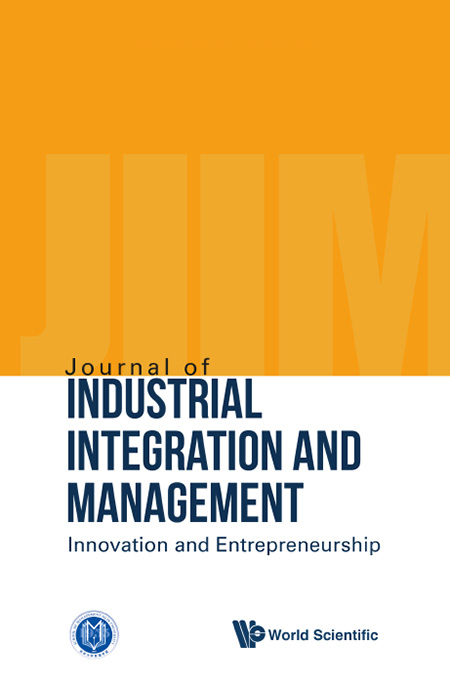社会绩效:印尼改善医院护理的重要转折点
IF 3.3
Q2 MANAGEMENT
Journal of Industrial Integration and Management-Innovation and Entrepreneurship
Pub Date : 2022-07-29
DOI:10.1142/s242486222250018x
引用次数: 0
摘要
COVID-19重新凸显了卫生保健社会责任意识和社会绩效衡量的重要性。医院在提供足够的设施和服务的同时,必须履行社会责任行为。然而,任何对社会绩效的分析仍然包含许多含糊之处,并且根据不同利益相关者的性质,其参考点可能有所不同。该研究使用解释性研究来衡量印度尼西亚医院的社会绩效,并检查对医院社会绩效影响最大的指标和维度。752家认可医院的数据来自印度尼西亚医院认证委员会(icwho)。数据分析采用结构方程模型(SEM)方法和SPSS AMOS软件。研究发现,环境力量和信息技术资源对社会绩效有显著的正向影响。此外,研究发现医院内部创业(在现有机构内的创业努力)在组织架构、环境力量和信息技术对社会绩效的影响中起中介作用。本研究通过展示如何衡量社会绩效的新颖性,以及通过使用组织架构、环境力量和信息技术,采取更好的努力来产生更多基于社会价值的医疗保健,从而有助于提高医疗保健质量。本文章由计算机程序翻译,如有差异,请以英文原文为准。
Social Performance: A Vital Turning Point for Better Hospital Care in Indonesia
COVID-19 refocused the importance of social responsibility awareness and social performance measurement of health care. Hospitals must carry out social accountability behaviors while still providing adequate facilities and services. However, any analysis of social performance still contains many ambiguities and can differ in its reference points depending on the nature of the different stakeholders. The study uses an explanatory study to measure the social performance of hospitals in Indonesia and examine the indicators and dimensions that influence social performance in hospitals the most. Data of 752 accredited hospitals were obtained from the Indonesian Commission on Accreditation of Hospital (ICAHO) in Indonesia. Data analysis was conducted using Structural Equation Model (SEM) methodology and SPSS AMOS software. The study found a significant and positive effect of environmental forces and information technology resources on social performance. Further, the study found that intrapreneurship (entrepreneurship efforts within established institutions) in hospitals mediated the effects of organizational architecture, environment forces, and information technology toward/in favor of social performance. This study contributes to improving the quality healthcare by demonstrating novelty for how social performance can be measured and better efforts adopted to produce more social value-based healthcare through the use of organizational architecture, environmental forces, and information technology.
求助全文
通过发布文献求助,成功后即可免费获取论文全文。
去求助
来源期刊
CiteScore
17.00
自引率
16.70%
发文量
31
期刊介绍:
The Journal of Industrial Integration and Management: Innovation & Entrepreneurship concentrates on the technological innovation and entrepreneurship within the ongoing transition toward industrial integration and informatization. This journal strives to offer insights into challenges, issues, and solutions associated with industrial integration and informatization, providing an interdisciplinary platform for researchers, practitioners, and policymakers to engage in discussions from the perspectives of innovation and entrepreneurship.
Welcoming contributions, The Journal of Industrial Integration and Management: Innovation & Entrepreneurship seeks papers addressing innovation and entrepreneurship in the context of industrial integration and informatization. The journal embraces empirical research, case study methods, and techniques derived from mathematical sciences, computer science, manufacturing engineering, and industrial integration-centric engineering management.

 求助内容:
求助内容: 应助结果提醒方式:
应助结果提醒方式:


